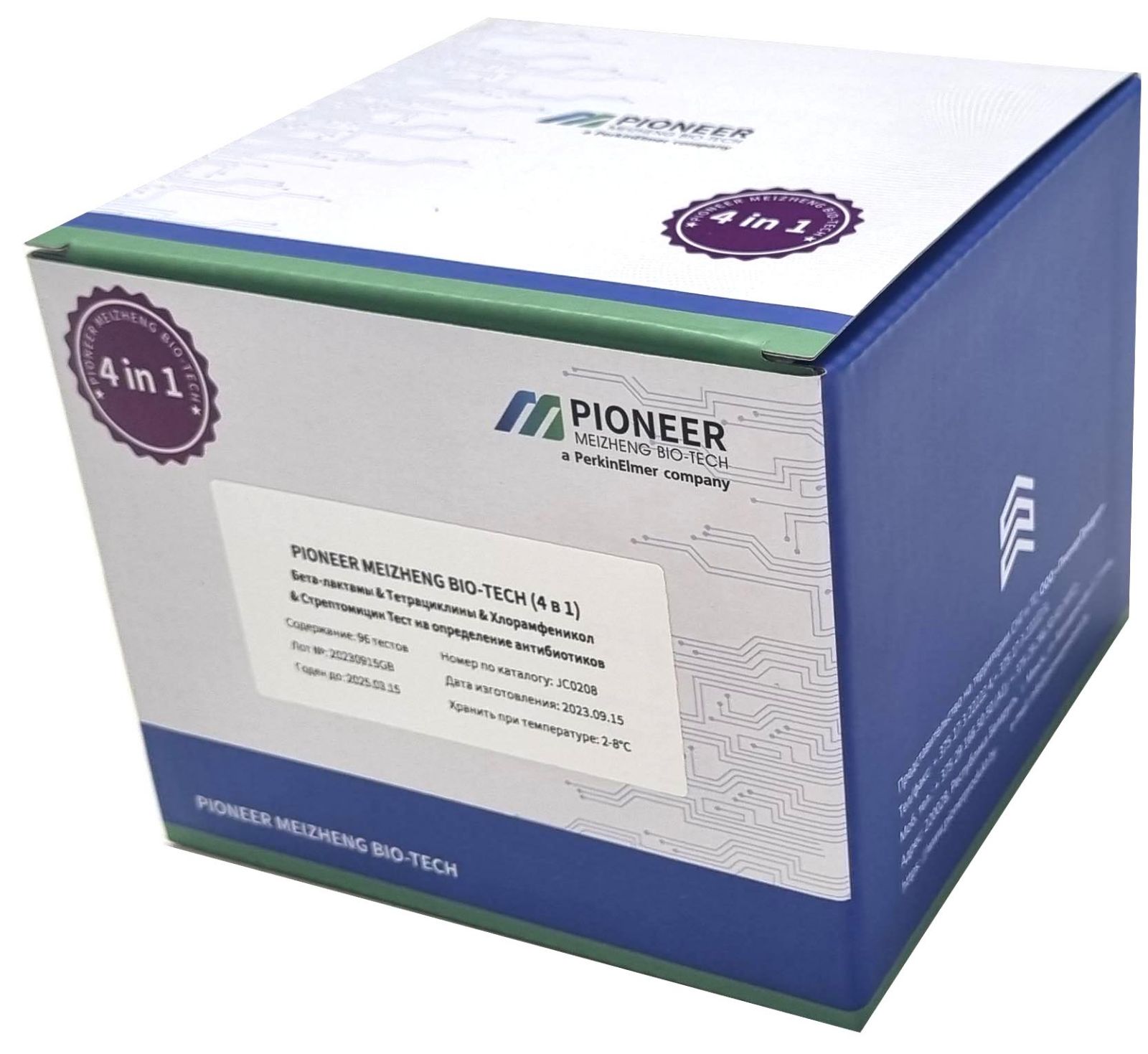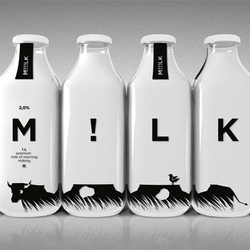GUID: P-7b18a.981 58.86.NV_9741
Phone / Fax:
+375 17 322-22-25
+375 17 322-22-24
+375 17 322-22-26
+375 29 166 50 50 (А1)
+375 29 266 50 50 (МТС)
Our Products
- Antibiotics Tests in Milk
- Inhibitory detection test
- Laboratory equipment
- Centrifuges
- Indicator strips
- Autoclaves
- Scales
- Thermometers
- Packing
- PureTrust ATP monitoring
- ATP monitoring PIONEERPRODUKT CleanTrust
- MICROFAST® substrates
- Nutrient media
- Ice cream sticks
- Consumables
- Detergents and disinfectants
- Treatment agent
- Milk filters
- Wipes
- Gloves
- Sampling
Harm from antibiotics in milk
Antibiotics are one of the most common and popular medicines. They can be used to treat or prevent diseases caused by bacteria, viruses or fungi. However, recently scientists have begun to pay serious attention to the fact that antibiotics that pass into MILK can cause serious HEALTH problems.
The consequences of using antibiotics in milk can be serious. First, it increases the risk of developing various forms of allergic reactions. Second, the increased amount of antibiotics consumed in milk contributes to the development of antibiotic resistance.
Allergic reactions are a common reaction caused by the consumption of milk containing an antibiotic. This can manifest itself in various forms, such as: rash, motion sickness, choking, shortness of breath, tears, fatigue, vomiting, convulsions, suffocation, suffocation.
Antibiotic-resistant bacteria is another big issue. This is when a bacterium becomes resistant to an antibiotic, making it impossible to remove. Since increased amounts of antibiotics ingested in milk increase the risk of developing resistance, this in turn increases the prevalence of "multiresistant" (MDR) bacteria.
MDR-bacteria - bacteria that are resistant to multiple antibiotics - can cause serious health problems. They can lead to longer and more complicated treatments and sometimes even death. In addition, they can spread to other people and cause infections in them as well.
Finally, the use of antibiotics in milk can also lead to the overgrowth of certain types of bacteria in the intestines. This can cause digestive problems such as bloating and diarrhea. It can also lead to a decrease in the absorption of certain vitamins and minerals from food.
In conclusion, it is clear that the use of antibiotics in milk can have serious consequences for human health. Therefore, it is important to be aware of this issue and take steps to reduce the amount of antibiotics used in milk production. This includes using better hygiene practices and only using antibiotics when absolutely necessary. Additionally, consumers should be aware of the potential risks associated with consuming milk containing antibiotics and should seek out milk that is free from antibiotics whenever possible.
Tags:
Test for Atnibiotics in Milk
 Express tests for determining the residual amount of β-lactams, tetracyclines, chloramphenicol, streptomycins in milk, whey
Express tests for determining the residual amount of β-lactams, tetracyclines, chloramphenicol, streptomycins in milk, whey TEST KIT for determination of inhibitory agents PIONEERPRODUKT® DASH-TEST, WC0040
TEST KIT for determination of inhibitory agents PIONEERPRODUKT® DASH-TEST, WC0040 PIONEER MEIZHENG BIO-TECH (5 in1) JC1165 / Rapid tests for the determination of the residual amount of halofuginone, flavomycin, novobiocin, flunixin, dexamethasone / prednisolone in milk, whey
PIONEER MEIZHENG BIO-TECH (5 in1) JC1165 / Rapid tests for the determination of the residual amount of halofuginone, flavomycin, novobiocin, flunixin, dexamethasone / prednisolone in milk, whey Rapid 4 in 1 tests for determining the residual amount of neomycin, kanamycin, gentamicin, spectinomycin in milk, whey
Rapid 4 in 1 tests for determining the residual amount of neomycin, kanamycin, gentamicin, spectinomycin in milk, whey ANTIBIOTICS / ELISA TESTS
ANTIBIOTICS / ELISA TESTS Rapid tests for determining the residual amount of tetracyclines in meat
Rapid tests for determining the residual amount of tetracyclines in meat- PIONEER MEIZHENG BIO-TECH (5 in 1) JC0726 / Rapid tests for determining the residual amount of Bacitracin, ansamycins, clindamycin, spiramycin, florfenicol in milk, whey
- Express tests for determining the residual amount of β-lactams and tetracyclines in milk, whey
- Rapid tests PIONER 5 in 1 for the determination of sulfonamides, tylosin, tilmicosin, lincomycin, erythromycin, fluoroquinolones
- Rapid tests for determining the residual amount of chloramphenicol in meat
Laboratory equipment
 Thermostats / incubators Memmert IN/IF series (Germany)
Thermostats / incubators Memmert IN/IF series (Germany) Residual Acidity Test Strips, 100 pcs.
Residual Acidity Test Strips, 100 pcs. Milk analyzer Expert Super Breeding
Milk analyzer Expert Super Breeding Table for scales BA-CL-0.6 CB (600x400x780)
Table for scales BA-CL-0.6 CB (600x400x780) Hanging cabinet with 3 drawers BA-CL- Х.Х ТНЯ-3
Hanging cabinet with 3 drawers BA-CL- Х.Х ТНЯ-3 Heating plate Tagler PN-4030SK
Heating plate Tagler PN-4030SK- Testo 206-pH1 - Pocket pH meter (0..14 pH)
- Milk quality analyzer "Laktan 1-4M" isp. 220
- Laboratory thermostat-reductor LTR
- Milk quality analyzer "Laktan 1-4M" isp. Mini
- Indicator strips pH 0-12, 100 pcs.
- Scrubber "KELTRAN" (KELTRUN)
- Thermohygrometer Testo 608-H1
- Muffle furnace SNOL 8,2/1100 (8,2 l., chamber - fiber)
- Bürkle SteriBag StandUp Sample Bags 400 ml, sterile, with inscription field
Packing
 Skiving and Hemming Technology
Skiving and Hemming Technology Parchment
Parchment Carton
Carton KH PACK® Straight Packing Paper
KH PACK® Straight Packing Paper The paper packing fastened anticorrosive UNIK 14-70 THAT 5453-003-05773103-2005
The paper packing fastened anticorrosive UNIK 14-70 THAT 5453-003-05773103-2005 Korreks for desserts
Korreks for desserts- Paper for micro-ribbed
- KH PACK® bag making paper
- Plastic packaging for cakes and pastries
- Laminating paper KH PACK®
- Cartons for milk and dairy products
- Ice cream chopsticks
- Laminating paper KH PACK®
- Siliconized paper for hygiene products
- Backed Foil
Additional Products
 J-Bottom technology
J-Bottom technology GableTop aseptic packaging
GableTop aseptic packaging Wafer cup and cone
Wafer cup and cone Auxiliaries for sugar products
Auxiliaries for sugar products Ice cream sticks (with logo)
Ice cream sticks (with logo) Ice cream sticks Standard 114
Ice cream sticks Standard 114- Ice cream sticks Standard 93
- Ice cream sticks Magnum (curly)
- General purpose environment of SPC "Biocompass-S" (Uglich)
- Petri dish 90 mm
- Ice cream sticks (round)
- Pepsin whey pork
Consumables
 Anti-catfish milking rings
Anti-catfish milking rings Spare pacifier
Spare pacifier Pump for artificial ventilation of the lungs
Pump for artificial ventilation of the lungs Milk filters - primary cleaning
Milk filters - primary cleaning Fall with a loop for cattle
Fall with a loop for cattle Veterinary Needles Reusable
Veterinary Needles Reusable- Forged pitchforks
- Reusable plastic syringe
- Milk bottle
- Pencils for marking animals
- Napkin reusable for wiping the udder
- Drencher for feeding calves with a rigid probe
- Dosing syringe, bottle attachment
- Self-adhesive hoof bandage
- Knife Hoofed
Microbiology
 Coliform Count Plate (catalog number LR1002) MicroFast® Coliform Count Plate
Coliform Count Plate (catalog number LR1002) MicroFast® Coliform Count Plate Substrate for accelerated determination of QMAFAnM, (catalog number LR1321)
Substrate for accelerated determination of QMAFAnM, (catalog number LR1321) MicroFast® Environmental Listeria Count Plate
MicroFast® Environmental Listeria Count Plate Substrate for determining the number of staphylococci (Catalog number LR1005) MicroFast® Staphyloccocus aureus Count Plate
Substrate for determining the number of staphylococci (Catalog number LR1005) MicroFast® Staphyloccocus aureus Count Plate MicroFast® Coliform & E.coli Count Plate
MicroFast® Coliform & E.coli Count Plate MicroFast® Enterobacteriaceae Count Plate (cat. no. LR1011)
MicroFast® Enterobacteriaceae Count Plate (cat. no. LR1011)- MicroFast® Staphyloccocus aureus Confirmation Plate Staph.aureus Confirmation Plate (cat. no. LR1005Q)
- MicroFast® Lactic Acid Bacteria Count Plate (Part Number LR1312)
- MicroFast® Microbiological Substrates
- MicroFast® Bacillus cereus Count Plate (catalog number LR1010)
- MicroFast® Salmonella Count Plate (SAL), for the determination of Salmonella in food and environmental samples (Catalog #LR1006)
- Substrate for determining QMAFAnM (catalog number LR1001)
- Yeast & Mold Count Plate (cat. no. LR1003) MicroFast® Yeast & Mold Count Plate
Our News
 Первые в центральном регионе. Узнали, какой каравай зерновых собрали в этом сезоне в ОАО "Гастелловское" 03.10.2025
Первые в центральном регионе. Узнали, какой каравай зерновых собрали в этом сезоне в ОАО "Гастелловское" 03.10.2025 Калининградская область заинтересована в обмене опытом с Беларусью в мелиорации и закупке техники01.10.2025
Калининградская область заинтересована в обмене опытом с Беларусью в мелиорации и закупке техники01.10.2025 Belarusian exports of dry milk products to Myanmar quadrupled in the first half of the year. 01.10.2025
Belarusian exports of dry milk products to Myanmar quadrupled in the first half of the year. 01.10.2025- В ОАО "Агро-Колядичи" умеют получать завидные урожаи30.09.2025
- "Россь" не рассчитывает на авось30.09.2025
- Куда инвестирует бизнес? Узнали, какой город в Беларуси выбрал для вложений производитель протеиновых батончиков30.09.2025
- БУТБ обеспечит платформу для взаимодействия белорусского и индонезийского бизнеса28.09.2025
- В ОАО "Святая Воля" в Ивацевичском районе за полгода выручка на каждого работника составила Br98 тыс.27.09.2025
- Газ на пятилетку, вторая АЭС, защита общего рынка и Украина. Подробности переговоров Лукашенко и Путина27.09.2025
- Record-breaking animals are being raised at the Ross breeding farm in the Volkovysk district.26.09.2025
- Шашлычок, мясные шарики, гуляш, борщ. Посмотрели, чем кормят детей в школе и сколько это стоит26.09.2025
- At OJSC "Svyataya Volya" in the Ivatsevichi district, revenue per employee over the past six months amounted to Br98 thousand.26.09.2025
- OAO Ostromechevo invested over $18 million in livestock development.26.09.2025
- Farmers at Rogoznyansky JSC in Zhabinka District increased their grain yields by more than a third.25.09.2025
- В ОАО "Агро-Колядичи" самой урожайной культурой оказался ячмень25.09.2025
- Алтайский край заинтересован в развитии биржевой торговли с Беларусью25.09.2025
Articles
 В Алтайском крае наблюдается уменьшение поголовья скота при росте молочного производства03.10.2025
В Алтайском крае наблюдается уменьшение поголовья скота при росте молочного производства03.10.2025 Красноярский край выделяет 60 миллионов рублей на поддержку аграриев для покупки племенных животных03.10.2025
Красноярский край выделяет 60 миллионов рублей на поддержку аграриев для покупки племенных животных03.10.2025 Чили — второй по величине рынок бразильской свинины03.10.2025
Чили — второй по величине рынок бразильской свинины03.10.2025- Испания остаётся ведущим производителем комбикормов в Европе03.10.2025
- В сентябре Россельхознадзор проконтролировал 82 тысячи тонн продукции животноводства в Московском регионе03.10.2025
- Рост сельхозпроизводства в августе: увеличение на 6,1% по сравнению с июлем03.10.2025
- Новый федеральный проект по поддержке малого агробизнеса: инвестиции и развитие сельских территорий03.10.2025
- Снижение объемов реализации сельхозпродукции в России за 2025 год: изменения и тенденции03.10.2025
- ПРОДО Омский Бекон запускает новый участок опороса с высокой производительностью03.10.2025
- Ростовская область экспортировала в Грузию новую партию свиней на убой03.10.2025
- Революция в производстве мяса птицы: Семикаракорский комбинат увеличил объемы на 25%03.10.2025
- Производитель тушенки в Бурятии повторно оштрафован за нарушения03.10.2025
- Miratorg's 15th Anniversary: The Meat Retail Leader Celebrates Its Anniversary03.10.2025
- Тюменская сеть магазинов «Светофор» оштрафована на 700 тысяч рублей за продажу мяса с антибиотиками02.10.2025
- В продукции ООО «Мерилен» в Хабаровске обнаружены кишечные палочки и превышение норм02.10.2025
- В Калужской области разоблачены торговцы фальсификатом мяса и рыбы02.10.2025
Economics
 10 reasons to take a deposit04.05.2025
10 reasons to take a deposit04.05.2025 Губернатор назвал меры по борьбе с топливным кризисом в Хабаровском крае02.10.2025
Губернатор назвал меры по борьбе с топливным кризисом в Хабаровском крае02.10.2025 Bloomberg узнал о плане G7 значительно ужесточить санкции против России02.10.2025
Bloomberg узнал о плане G7 значительно ужесточить санкции против России02.10.2025- G7 заявила о проработке использования всей суммы российских активов02.10.2025
- Фон дер Ляйен заявила о смене подхода к санкциям против России02.10.2025
- США раскрыли долю поставляемого из России топлива для ядерных реакторов01.10.2025
- Евросоюз частично восстановит санкции против Ирана30.09.2025
- Yle узнал, что ЕС не планирует вносить российский никель в список санкций28.09.2025
- Иран сообщил о предложенной Штатами отсрочке санкций в обмен на уран28.09.2025
- Кремль отреагировал на планы ЕК изменить механизм продления санкций27.09.2025
- МИД ввел санкции против Британии и назвал ее меры «тришкиным кафтаном»27.09.2025
- Politico has learned that the European Commission has proposed changing the sanctions extension mechanism.26.09.2025
- В Венгрии подсчитали убытки из-за отказа от российского газа26.09.2025
- The FT reported on the German cellist's "too bold" ties to Russia.26.09.2025
- Bloomberg назвал условие Индии для отказа от российской нефти26.09.2025
- EUObserver узнал о нежелании ЕС закрываться от российских туристов25.09.2025
Antibiotics in Milk
 В Британии предупредили о риске для миллионов из-за супербактерий06.01.2025
В Британии предупредили о риске для миллионов из-за супербактерий06.01.2025 Moscow court sides with Indian company in dispute with Health Ministry26.11.2024
Moscow court sides with Indian company in dispute with Health Ministry26.11.2024 Scientists estimate increase in mortality due to drug-resistant bacteria29.10.2024
Scientists estimate increase in mortality due to drug-resistant bacteria29.10.2024- Antibiotics for livestock and pesticides found in poisoned family's home29.10.2024
- Izvestia reported on the shortage of widely used antibiotics in Russia29.10.2024
- The Ministry of Health called data on the shortage of antibiotics unreliable29.10.2024
- Scientists warn of threat of return to pre-penicillin times29.10.2024
- The Ministry of Health explained how attitudes towards antibiotics changed during the pandemic07.05.2024
- WHO explains the risks of taking antibiotics "just in case"06.05.2024
- Doctors warn of bad practices after government decision on antibiotics25.04.2024
- The Ministry of Health removed antibiotics and hormones from the standard treatment of ARVI25.04.2024
- Antibiotics in oil: myth or reality?06.03.2024
- Antibiotics in sour cream: myth or reality?05.03.2024
- Antibiotics in goat milk: effects, problems and control measures16.02.2024
- The Japanese will stop producing the popular antibiotic vilprafen in Russia23.12.2023
- Antibiotics in Milk21.12.2023
Antibiotics in Meat
 Antibiotics in pollock25.02.2024
Antibiotics in pollock25.02.2024 Antibiotics in herring: myth or reality?12.02.2024
Antibiotics in herring: myth or reality?12.02.2024 Antibiotics in perch10.02.2024
Antibiotics in perch10.02.2024- Antibiotics in sprat: facts and myths10.02.2024
- Antibiotics in tuna: an important health and environmental issue09.02.2024
- Antibiotics in meat30.01.2024
- Antibiotics in chebureks: myth or reality?29.01.2024
- Antibiotics in cutlets: problem or myth?18.01.2024
- Antibiotics in Chicken: Where Are the Highest Concentrations?17.01.2024
- Antibiotics in carp17.01.2024
- Where Are More Antibiotics in Chicken: Reality and Cautions16.01.2024
- Antibiotics in Salmon: Safety and Product Quality16.01.2024
- Antibiotics in Turkey15.01.2024
- Antibiotics in Sal: Reality and Safety Issues15.01.2024
- Antibiotics in Fried Dumplings: Facts, Risks and How to Stay Safe15.01.2024
- Antibiotics in sausages14.01.2024
10 Interesting Facts
 Antibiotics in Coffee: Myths and Reality03.05.2025
Antibiotics in Coffee: Myths and Reality03.05.2025 Forged forks: 10 interesting facts16.05.2024
Forged forks: 10 interesting facts16.05.2024 Swimming pool and weight loss: 10 interesting facts10.03.2024
Swimming pool and weight loss: 10 interesting facts10.03.2024- Tests for antibiotics in milk - 10 interesting facts07.03.2024
- Cleaning the kettle from scale, 10 interesting facts...06.03.2024
- Antibiotics in beer: 10 interesting facts04.03.2024
- Wild boar, how to survive...01.03.2024
- Purulent mastitis, 10 interesting facts27.02.2024
- Lemon and alcohol: 10 interesting facts25.02.2024
- Mint - 10 interesting facts25.02.2024
- Wild boar, 10 interesting facts20.02.2024
- Wild boar and domestic pig: comparison and advantages20.02.2024
- Cottage cheese, 10 interesting facts20.02.2024
- 10 Interesting Facts About Milk19.02.2024
- How to Clean a Toilet - 10 Interesting Facts (Acid vs Alkaline)18.02.2024
- Goat's milk: 10 interesting facts16.02.2024
Diseases of cattle
 Dicroceliosis in cattle09.03.2024
Dicroceliosis in cattle09.03.2024 Demodicosis in cattle01.03.2024
Demodicosis in cattle01.03.2024 Purulent mastitis of cattle27.02.2024
Purulent mastitis of cattle27.02.2024- Hypodermatosis in cattle20.02.2024
- Hemonchoz in cattle11.02.2024
- Bursitis in cattle30.01.2024
- Brucellosis in cattle29.01.2024
- Bronchopneumonia in calves27.01.2024
- Bronchitis in cattle26.01.2024
- Mortellaro disease in cattle24.01.2024
- White muscle disease in cattle23.01.2024
- Babesiosis in cattle22.01.2024
- Cattle acidosis20.01.2024
- Arthritis in cattle20.01.2024
- Anaplasmosis in cattle18.01.2024
Misc
 Antibiotics for coughs: when they are needed and when they are not11.02.2024
Antibiotics for coughs: when they are needed and when they are not11.02.2024 Ответственность для бесправников планируют дифференцировать в зависимости от их категории03.10.2025
Ответственность для бесправников планируют дифференцировать в зависимости от их категории03.10.2025 О самых распространенных причинах пожаров рассказали в МЧС03.10.2025
О самых распространенных причинах пожаров рассказали в МЧС03.10.2025- Из-за пьяного бесправника погибли два человека. Следователи раскрыли подробности ДТП в Браславском районе02.10.2025
- В Бресте нетрезвая женщина попала под машину02.10.2025
- "Cardboard Superpower." What is Poland prepared to take into 2026?02.10.2025
- A drunk mechanic hit a Gomel resident with his own car. The Investigative Committee has revealed details of the case.01.10.2025
- Хулиганство в интернете и реальной жизни. Верховный Суд обновил разъяснения для правоприменителей30.09.2025
- Compensation for moral damages, 4 years in prison. The perpetrator of a fatal accident near Gomel has been sentenced.30.09.2025
- She stabbed her partner in the back. The Investigative Committee has revealed details of the criminal case in Novopolotsk.27.09.2025
- За смену - десятки вызовов. Сотрудники ППС о спецзаданиях и необычных случаях 27.09.2025
- Как победить "осенний синдром"? Очень простые советы для хорошего самочувствия27.09.2025
- В Беларуси перенесены сроки введения прослеживаемости и маркировки товаров 26.09.2025
- Что является одной из основных причин травмирования на производстве, рассказали в ФПБ25.09.2025
- Минчанин лишился крупной суммы и золотого слитка после неудачного свидания 24.09.2025
- В центре внимания пешеходы и велосипедисты. ГАИ усилила контроль за соблюдением ПДД в Минском районе 24.09.2025
Cloud of Tags
МужчиныТурцияРоссельхознадзорТатарстанСвиноводПродовольствиеБеларусьКанадаПесковМясокомбинатПодмосковьеБройлерДмитрий песковТребованияПоголовье свинейГовядинаГазпромОнлайнЛабораторное ОборудованиеМинсельхозКрупный рогатый скотСевастопольКоронавирусПитаниеЛечениеВладимир ПутинВеликобританииИммунитетЗависимостьКазахстанСанкцииРаботаСмертьПроизводство мясаНовостиЭкономикаАлкогольЭнтони блинкенЗапретПродукты питанияМоскваОтпускПрокуратураПроизводство молокаОбщепитВенесуэлаБразилияReutersИсследованияВеликобританияЯндексПраздникЖивотноеСергей СобянинПоддержкаBloombergЛондонЗрениеЕгипетКолбасыМихаил МурашкоОрганизмИнфляцияЗаконопроектСвининаСельское хозяйствоAstraZenecaВластиСеверный потокЕврокомиссияМинфинБолезньАзербайджанБумагаРоссияЗеленскийЗдоровьеВыручкаПионерПродуктЛекарстваЭкспортУпаковкаCOVID-19МинздравДивидендКрупного рогатого скотаФранцияЦентробанкФитнесРоссиянеRussiaДжо БайденУкраинаПродукцияВакцинацияУкраинеИнвестицииCoronavirusУченыеДиректорForbesБерлинГовядинуHealthСубсидииКартофельПольшаАлкогольного опьяненияКризисУзбекистанПтицефабрикаВ китаеМолокоTelegramВакцинацииЦитатаGoogleВостокУрожаяКлиматФруктыМакронЗахароваИмпортНедвижимостьСпутника vГерманияДеньгиДолларБизнесДоходыКарантинРоспотребнадзорМясо птицыПравительствоМедведевРосстатЯпонияFacebookМурашкоИталияСанкт-ПетербургАвстралияПолуфабрикатТатьяна ГоликоваАлександр ЛукашенкоКредитСпутник vВьетнамФермер
Persons
Our Partners
Top 10
Our Test - Pioneer Tests
- Express tests for determining the residual amount of β-lactams, tetracyclines, chloramphenicol, streptomycins in milk, whey
- TEST KIT for determination of inhibitory agents PIONEERPRODUKT® DASH-TEST, WC0040
- PIONEER MEIZHENG BIO-TECH (5 in1) JC0586 - Antibiotic tests 5 in 1 / Rapid tests for determining the residual amount of β-lactams, tetracyclines and cephalexin in milk, whey
- PIONEER MEIZHENG BIO-TECH (5 in1) JC0871/ Rapid tests for the determination of the residual amount of β-lactams, tetracyclines, chloramphenicol, streptomycins, ceftiofur in milk, whey.
- PIONEER MEIZHENG BIO-TECH (5 in1) JC1165 / Rapid tests for the determination of the residual amount of halofuginone, flavomycin, novobiocin, flunixin, dexamethasone / prednisolone in milk, whey
"PionerProdukt" LTD 2015 - 2025 - The quality is higher than the price...

